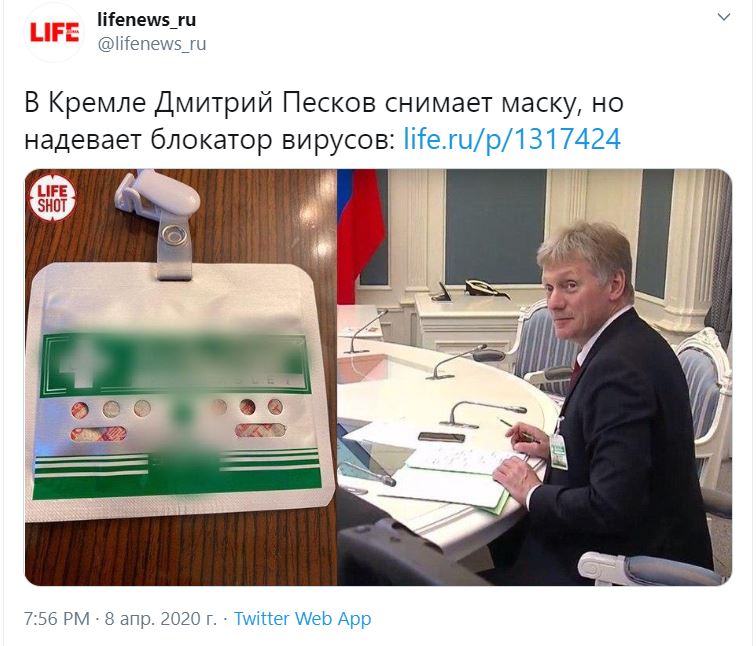
Russia’s coronavirus epidemic continues to grow. What is Putin doing?
Russia now ranks among the world’s top 20 countries for numbers of COVID-19 patients. Over 10,000 Russians have tested positive for COVID-19, and the rate of growth shows no sign of slowing. Experts believe Russia’s health care system is already failing to cope. Companies are beginning to go bankrupt, caught between the unavailability of government subsidies and under pressure to continue paying full salaries. According to a senior official, President Vladimir Putin gave an order this week “not to drain reserves”.
How the epidemic is developing
After several weeks of low numbers, this week saw a sharp rise in the number of new COVID-19 cases in Russia — there are now more than 1,000 per day.
- The epicenter of the outbreak is Moscow. By Friday there were 11,917 cases of COVID-19 in Russia, of which 7,822 were in the capital.
- Russia’s infection ‘curve’ this week looks like Italy’s in early March, but with one exception: in Italy, by the time there were 10,000 registered cases, there had been 631 deaths. In contrast, Russia has only reported 94 deaths from COVID-19. This may be because of the less active social lives of Russian elderly people, or — more likely — differences in how the numbers are tallied.
- The growth of new cases will continue to accelerate until at least the beginning of next week, which marks two weeks since the first lockdown measures. The director of the Institute of the Economics of Healthcare at Moscow’s Higher School of Economics, Larisa Popovich, blamed dithering by officials for the rapid rise. On March 25, Putin declared the following week a “holiday”, but a lockdown and social distancing measures were not imposed until 4 days later.
- Moscow Mayor Sobyanin said Friday that hospital admissions were rising rapidly in the Russian capital, and a permit system would be gradually introduced next week. The first stage will be digital passes for those travelling to work, then for all other journeys, then for those wishing to move about within their city districts. Bad weather has helped keep many people indoors, but temperatures in the capital are set to rise.
What is Putin doing?
At the end of March, political analysts were talking of a power vacuum in the Kremlin: unlike world leader including U.S. President Donald Trump, who holds daily briefings on the coronavirus crisis, Putin has transferred responsibility for containing the outbreak to Prime Minister Mikhail Mishustin and local officials — primarily Sobyanin. Putin thinks lockdown is unpopular, and doesn’t want to be tarnished by it, according to sources close to the Kremlin.
This week, there were few changes to this pattern. Putin gave Wednesday his third national address since the epidemic began — but it was disguised as a Zoom meeting with regional governors. Putin announced some modest help for the unemployed and families with children, but did not ramp up lockdown measures. However, the last phrase of his address, in which he compared the epidemic to the nomadic invasions over 1,000 years ago led to endless memes. Putin said: “When tormented by the Pechenegs and the Cumans, Russia has handled them all. In the same way, we will defeat this coronavirus contagion.”
Putin’s press secretary Dmitry Peskov gave everyone another reason to laugh. He appeared at a meeting Wednesday with a strange badge on his jacket, later explaining to journalists that it was a “virus blocker” he bought at a pharmacy.
It later emerged that Peskov’s badge emitted chlorine dioxide — a pseudo-scientific way of ‘disinfecting’ air that is popular in some countries. In the U.S., the FDA has warned against using such badges. Peskov was without the “virus blocker” at his next meeting.

Little help for the economy
There is little time to laugh for Russian companies at the moment. Unlike in the U.S. or Europe, the Russian authorities are reluctant to commit to a huge aid package for businesses. But they still expect companies to continue paying full salaries.
- Spending to help the economy has been a laughable 300 billion rubles ($4 billion), and this week officials promised a second anti-crisis package. However, it will not include money for businesses, two officials told The Bell on Wednesday.
- According to one official, Putin demanded the government avoid “draining” its reserves (Russia’s sovereign wealth fund currently has about $175 billion). The second source said both Mishustin and Finance Minister Anton Siluanov agree. “Strong companies will survive the crisis anyway,” he paraphrased their arguments.
- It is easy to believe that Putin has no desire to help ‘weak companies’. One only has to recall his recent interview in which he referred to small businesses as “swindlers”.
- The measures the government has already put forward are not proving useful. For example, small businesses were promised interest-free loans to pay salaries — but the loans will be calculated using the minimum monthly wage of 12,000 rubles ($150), which is far lower than the overwhelming majority of salaries.
- As a result, business owners are risking criminal charges to fire staff. About 50 percent of companies have transferred staff to part-time, and 30 percent have given their employees unpaid leave. A total of 16 percent of companies have already dismissed staff, while 31 percent are planning to do the same.
- Up to 30 percent of companies could go bankrupt as a result of coronavirus, according to the Kremlin-friendly think tank the Center for Strategic Development.
Why the world should care
The long term and short term outlook are both worrying. Russia’s epidemic is several weeks behind most European countries, but both the number of new cases and deaths are rising fast. The coming months are likely to see a big economic shock — and the meagre help on offer for businesses may make this even more painful than it could be.



